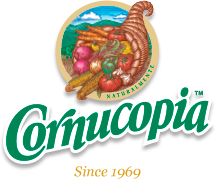FDA Links Contaminated Pet Treats to Human Illness

On June 9th, 2015, the FDA released a report discussing the relationship between bacteria contaminated pet food and treats, pet illness, and human illness. The report is divided into four parts: the goals of the study, the parameters of the study, the results of the study thus far, and a list of precautions pet owners can take in light of the findings.
The Goal
Led by the FDA and the Veterinary Laboratory Investigation and Response Network (Vet-LIRN), the goal of the study, in the words of Vet-LIRN's Director and lead research biologist Renate Reimschuessel, V.M.D, Ph.D:
"Ultimately, we're hoping to learn ways FDA can help minimize the incidence of food-borne illness associated with pet foods and treats."
The Parameters of the Study
Over the past 2 year, eleven of Vet-LIRN's 34 labs focused on the issue of food-borne salmonella infections in cats and dogs. The lab portion of the study consisted of establishing a test group of 100 dogs and cats displaying signs of salmonella, testing the stool of those dogs and cats, and comparing the results of those test to those performed on the stool samples of the control group, which consisted of a 100 dogs and cats who were not showing signs of salmonella. This lab portion of the study was supplemented with a detailed owner survey covering topics ranging from pet diet to recent health.
The Results of the Study (So Far)
While the FDA hopes to release a full report by 2016, they have released some of the preliminary findings. Among the more interesting details to be released is the fact that of the 2,965 pets that were tested, fewer than 100 actually tested positive for salmonella bacteria. Even more interesting was that fact that of those animals that tested positive, nearly half showed little to no signs of being infected.
In addition to these facts, the study also established that pets who tested positive for Salmonella were more likely to have eaten raw pet food or to have been on a raw food diet.
Precautions Pet Owners Can Take

In light of the results of the study thus far, the FDA has provided pet owners with a list of simple, but effective guidelines for reducing the risk of pet food-borne illness among their families and their pets.
- Avoid purchasing pet food in damaged packaging
- Feed pets in a place that can be sanitized or cleaned easily
- Wash your hands after preparing your pet's food
- Consider having designated pet food utensils
- Store pet food at the proper temperature
- Store pet food in well sealed containers
So...what are our takeaways?
From what the study has found so far it seems clear that there are links between contaminated pet food and human incidents of bacteria related illness. That being said, pet food-borne illness is easily preventable. Ensuring that your family (four-legged members, included) stay happy and healthy can be as simple as having safe food storage habits and establishing a little extra kitchen cleanliness.



